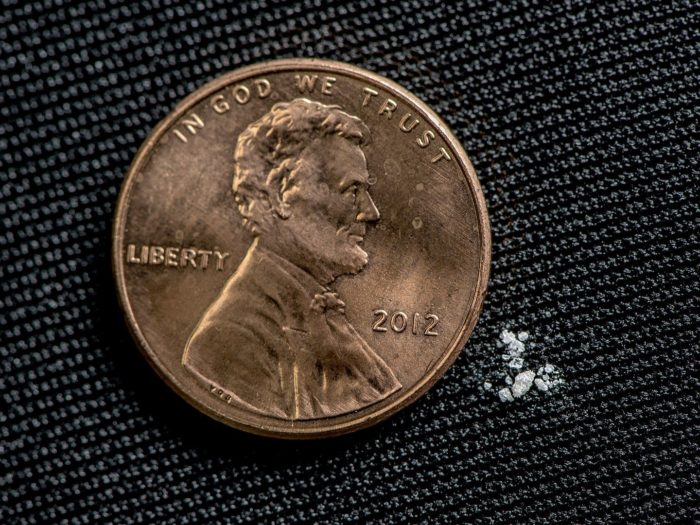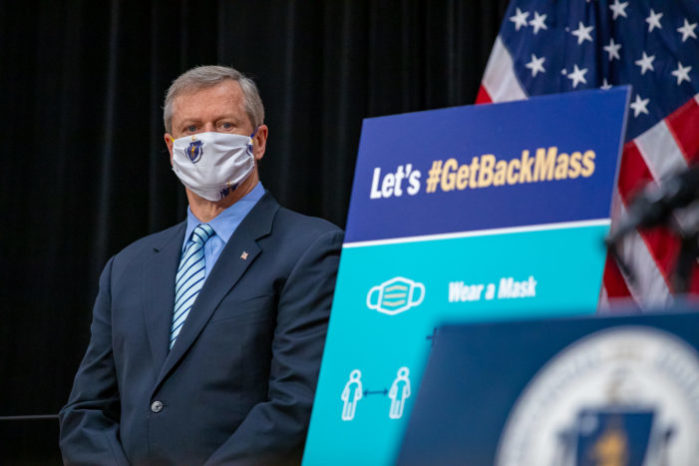
The data shows that fewer people are overdosing on heroin, but ODs related to prescription opioids continue to rise
LOCAL
As a COVID winter approaches, Boston Mayor Marty Walsh’s plan to address chronic homelessness and addiction, which launched over the summer, still appears to be in a planning phase.
The City Council’s Public Health Committee called members of the Walsh administration to a hearing on Nov. 17 to discuss whether or not special considerations are being made given the ongoing pandemic and the infection rate spikes that are expected moving into winter.
“Programs and shelters had to readjust their services,” Councilor Ed Flynn said about the impacts of COVID-19. “We have seen many cities and towns across Massachusetts shut down their social services. Boston became the social services across the state.”
Walsh announced his so-called “Melnea Cass/Mass. Ave 2.0” strategy in August. The plan created a two-dozen member committee to assess the intersection’s problems. Thus far, the city has increased police presence in the area, ostensibly to help facilitate individuals seeking treatment. Part of the plan also includes decentralizing addiction treatment and homelessness services, many of which have been consolidated in the crosshairs of Melnea Cass since Walsh took office in 2014.
Leo Beletsky, a Northeastern professor of law and health sciences, praised the city’s creation of comfort stations in the area, but largely criticized officials for not doing enough.
“I think that during COVID-19 all of these issues have really come to a head,” Beletsky said during the hearing. “We need to be making more substantial and more innovative interventions in these areas rather than what I see is a lot of cosmetic work. It’s essentially a lot of moving the problem around, which certainly doesn’t address it.”

STATE
Beyond the Boston city limits, opioids continue to be a major problem for the Commonwealth. The state’s Department of Public Health released new data on overdose deaths, which show a 2% increase in 2020 through September when compared to the first nine months of 2019.
The data shows that fewer people are overdosing on heroin, but ODs related to prescription opioids continue to rise. Fentanyl was present in almost all of the overdoses.
The commonwealth suffered its deadliest year in terms of opioid overdoses in 2016, but 2020 is on pace to be the second deadliest.
“We recognize that the stress, anxiety and social isolation brought on by COVID-19 can be especially hard on those dealing with substance use disorder and we remain focused on serving those in need with our multi-pronged strategy to overdose prevention treatments, services, and supports,” Baker said in a statement released with the new overdose data.
The state is on track for more than 2,000 opioid deaths this year, but with over 10,000 COVID-19 deaths, overdoses have received less attention. According to the executive director of the Massachusetts Municipal Association, which lobbies on behalf of the state’s towns and cities, “the tragedy is that COVID-19 is eclipsing the opioid crisis, diverting essential health resources away from needed prevention and treatment efforts, and is amplifying our vulnerability to substance use disorders due to increased isolation, separation and mental health impacts.”
NATIONAL
A change in focus and quarantine-related isolation may create a perfect storm for the growth in addiction, but at least there’s “good news” for companies seeking inexpensive labor.
US Senators ElizabethWarren and Tammy Baldwin asked the federal General Accounting Office to investigate the extent to which federally-funded addiction organizations were farming out their patients for unpaid labor.
“Some rehabilitation facilities have mandatory work requirements, described as vocational therapy, in which participants are sent to work for contractors of or directly at private companies, but receive little to no pay for their labor,” according to the open letter signed by both senators.
The demand for more information came after a Reveal News investigation found that at least 300 addiction treatment facilities among 44 states were requiring clients to provide unpaid labor in exchange for their stays. Some shelters kept the free labor in-house, while others worked with large companies such as Wal-Mart, Exxon, and Shell. The project was extremely revealing indeed:
Reveal interviewed hundreds of current and former employees, rehab participants and state regulators and reviewed thousands of pages of tax records, financial documents, and wage and injury reports. We also documented companies that use these unpaid rehab workers. Some companies said they were unaware of their connection to the unpaid work, thanks to layers of subcontractors, or denied it altogether; other companies that used rehab labor at one point have since severed ties.
Warren and Baldwin’s open letter cited research, or rather the lack thereof showing that unpaid vocational service programs have been remotely successful in addressing addiction while creating a free source of labor …
“Individuals struggling with substance use disorder who attend rehabilitation programs should never be subjected to predatory conditions that threaten their recovery and violate their rights under the law. Federal funding dedicated to supporting individuals and communities navigating substance use disorder must be used in service of evidence-based prevention, treatment, and recovery.”
Zack is a veteran reporter. He writes for DigBoston and VICE, and formerly reported for the Boston Courant and Bulletin Newspapers.

